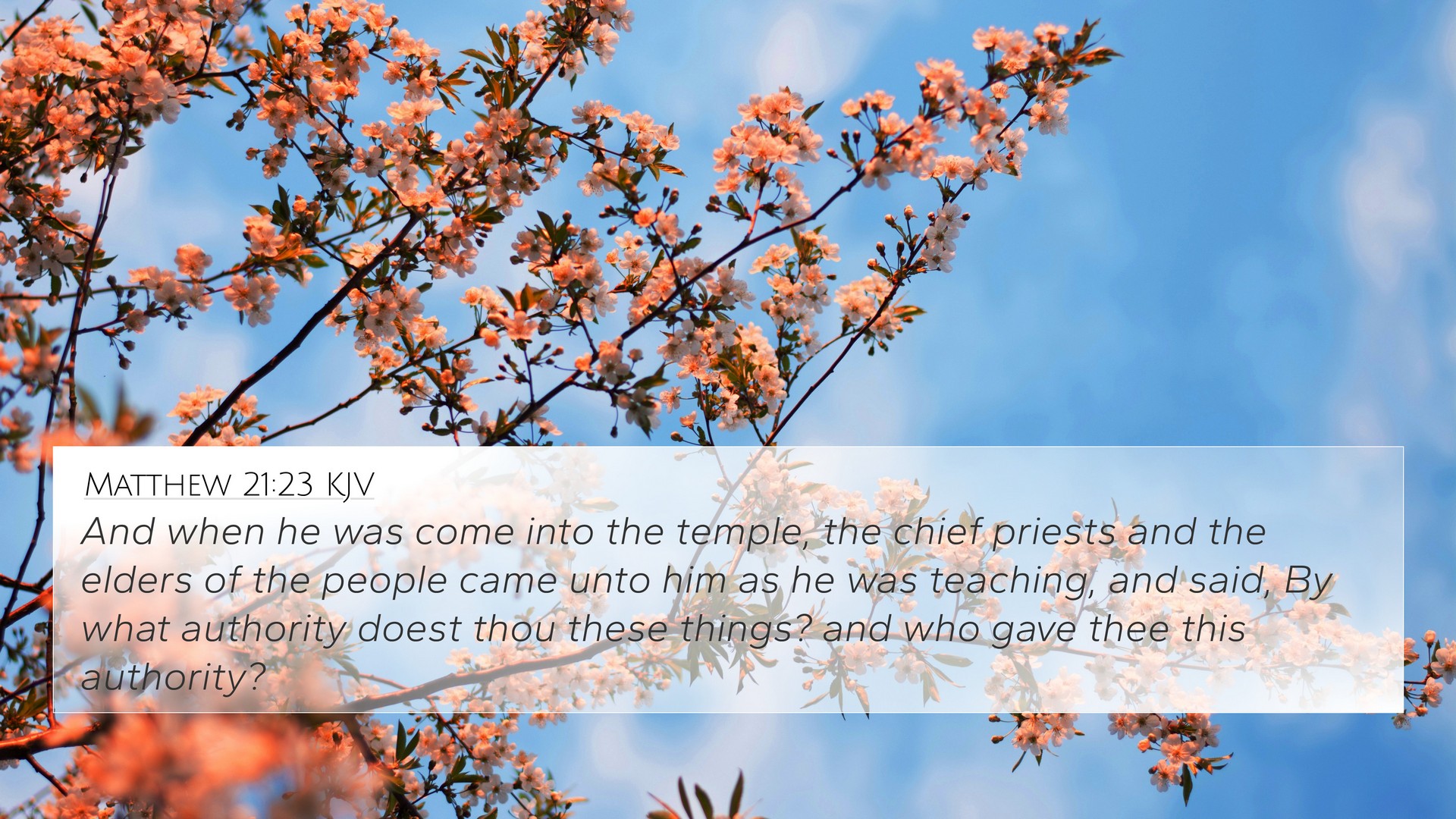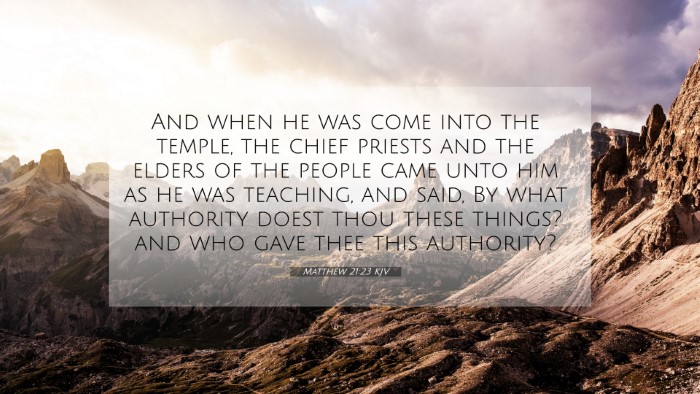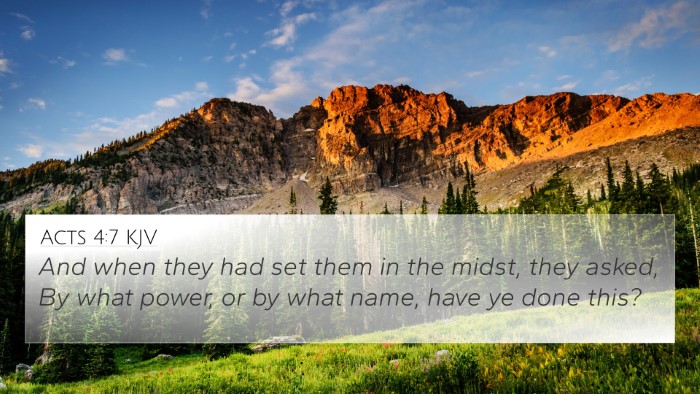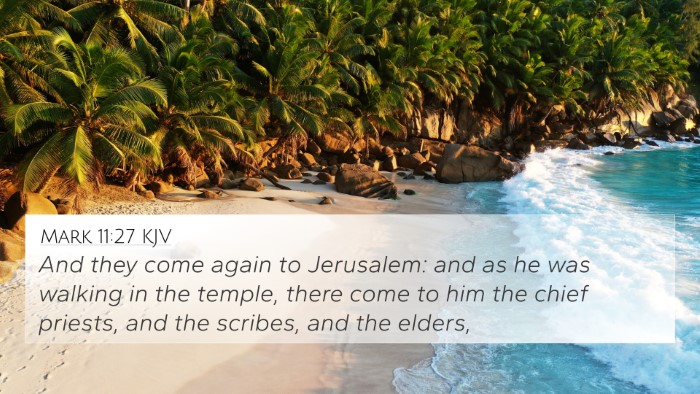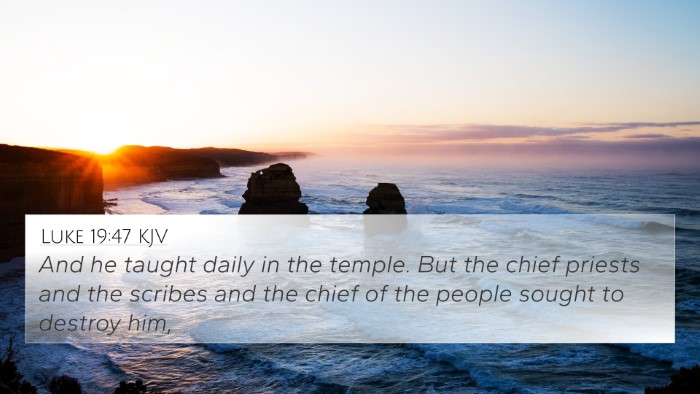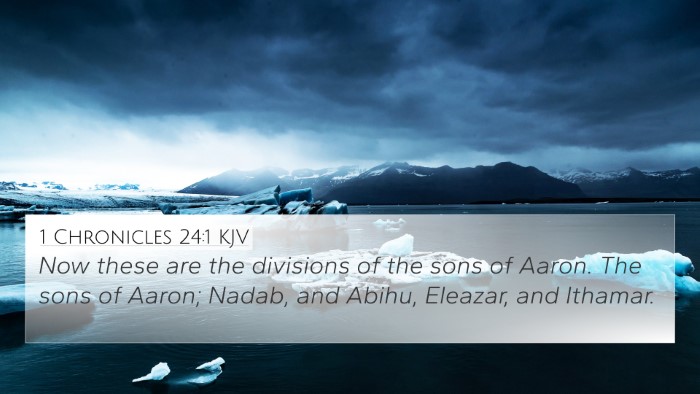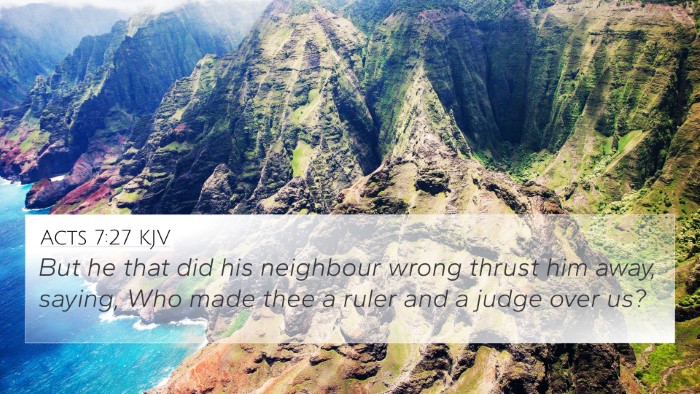Understanding Matthew 21:23
Verse Context: In Matthew 21:23, we find Jesus teaching in the temple, and the chief priests and elders come to Him with a question about His authority. This interaction is critical as it underscores the tension between Jesus and the religious leaders of His time.
Verse Analysis
Matthew 21:23 states: “And when He was come into the temple, the chief priests and the elders of the people came unto Him as He was teaching, and said, By what authority doest thou these things? and who gave thee this authority?”
The question posed to Jesus reflects a significant challenge to His ministry. The religious leaders are seeking to undermine His authority by questioning the legitimacy of His actions, especially as He had just cleared the temple (Matthew 21:12-13).
Key Themes Explored
- Authority of Jesus: The religious leaders' inquiry reveals their disbelief in Jesus' divine authority. Matthew Henry emphasizes that their challenge is not merely about the miracles or teachings but directly questions Jesus' status as the Messiah.
- Confrontation with Religious Leaders: Albert Barnes notes that this interaction is emblematic of the ongoing conflict between Jesus and the established religious order. He portrays Jesus as confronting the hypocrisy and corruption among the leaders.
- Challenge to Faith: Adam Clarke discusses how their questioning is indicative of broader themes of faith and acceptance of Jesus' ministry. This scene serves as a test of faith for those observing the exchange.
Bible Verse Cross-References
To fully grasp the significance of Matthew 21:23, it helps to look at the following cross-references:
- Matthew 7:29 - "For he taught them as one having authority, and not as the scribes." - Highlights Jesus' authoritative teaching.
- John 10:25 - "Jesus answered them, I told you, and ye believed not: the works that I do in my Father's name, they bear witness of me." - Jesus emphasizes His authority through His works.
- Matthew 21:12-13 - The cleansing of the temple precedes this question; it sets the stage for the religious leaders' inquiry.
- Luke 20:1-2 - A parallel account where the chief priests and scribes ask Jesus by what authority He does these things.
- Isaiah 61:1-2 - Prophecy concerning the authority and mission of the Messiah, foreshadowing Jesus' role.
- Acts 4:7 - Apostles questioned about the authority by which they healed a lame man, mirroring the temple confrontation.
- Matthew 12:8 - "For the Son of man is Lord even of the sabbath." - Jesus asserts His authority over the Law.
Thematic Bible Verse Connections
This verse connects to larger themes within the Gospels, where authority, faith, and challenges are recurring motifs.
Reflections from Commentaries
Each of the commentaries brings insightful reflections on the implications of Jesus' authority and the reaction of the religious leaders:
- Matthew Henry: Explored the implications of divine authority, suggesting that true authority comes from God, which Jesus embodies.
- Albert Barnes: Provided critical context that these leaders were blind to the identity of the Messiah standing before them, representing a spiritual darkness.
- Adam Clarke: Emphasized the importance of understanding authority in the context of faith and the rejection faced by Jesus.
Conclusion
Matthew 21:23 serves as a pivotal moment in Jesus’ ministry, illustrating the conflict between His divine authority and the skepticism of the religious leaders. By examining this scripture alongside its relevant cross-references and thematic connections, believers can deepen their understanding of Jesus’ mission and the nature of faith.
Ultimately, this passage encourages reflection on one's own beliefs about the authority of Christ and how it plays a role in contemporary faith practices. As we study and connect verses throughout the Bible, we enhance our understanding of the inter-Biblical dialogue and the rich tapestry of scriptural meaning.
